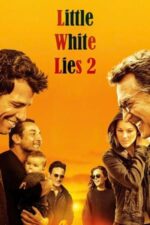The Sweet Ache of Summer: More Than Just Sunshine & Ice Cream
Isn't there something uniquely potent about summer vacation? It’s not just the sunshine, or the freedom from routine (though those are definitely perks!). It’s a feeling – a bittersweet blend of possibility, nostalgia, and that creeping awareness that time is slipping through your fingers. I think filmmakers understand this instinctively; they return to the theme again and again, exploring its complexities in fascinating ways.
We often associate summer with carefree joy, and you certainly see that reflected on screen. Take Z-O-M-B-I-E-S 4: Dawn of the Vampires, for example. It’s pure, silly fun – a summer road trip complicated by supernatural squabbles! There's something inherently appealing about the idea of escaping into adventure, even if that adventure involves mediating peace between vampires and daywalkers. It taps into that desire to break free from the everyday.
But summer vacation isn’t always sunshine and rainbows. Think about Bonjour Tristesse. Set against a gorgeous French coastal backdrop, it's ostensibly a story of youthful romance and relaxation. Yet, beneath the surface lies a simmering tension, a disruption of idyllic peace by the arrival of someone from the past. That sense of something lurking just below the surface – that’s what makes summer vacations so compelling to explore in film. It's a time when facades can crack, and hidden truths come bubbling up.
And then there’s Well, We Were Lucky with the Weather. This one really resonated with me because it captures the awkwardness of family holidays perfectly! The clash between Gösta’s meticulously planned adventure and his children’s desires – Johan wanting to swim, Lotta just wanting to be anywhere else – is so relatable. It reminds us that even the most well-intentioned attempts at creating a perfect summer memory can be messy and complicated. My own family vacations as a kid often involved similar levels of mild chaos (and my dad's insistence on visiting every single historical marker within a 50-mile radius!).
Even mysteries like The Great Alibi use the setting to amplify the tension. The picturesque village, the seemingly perfect lives of its inhabitants – it all creates a sense of unease when violence shatters that illusion. It’s a reminder that even in paradise, darkness can hide.
Finally, Moving On, with its quiet exploration of family connection and finding comfort in unexpected places, offers a gentler perspective on the summer vacation theme. It's about embracing change and discovering warmth within a blended family – a beautiful counterpoint to some of the more turbulent examples we’ve discussed.
Ultimately, what makes these films so engaging is their ability to capture that complex emotional landscape of summer: the joy, the melancholy, the sense of transition. They remind us that it's not just about where you go, but who you are and who you become during those fleeting moments of freedom. So next time you’re looking for a film to transport you, consider one that explores this timeless theme – you might be surprised by what you discover.







































